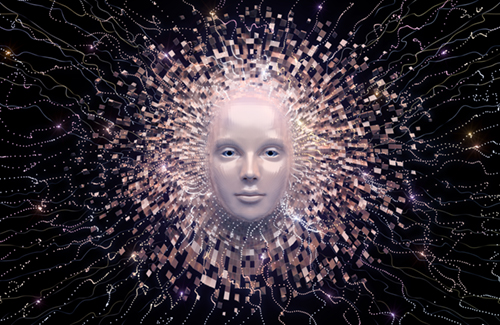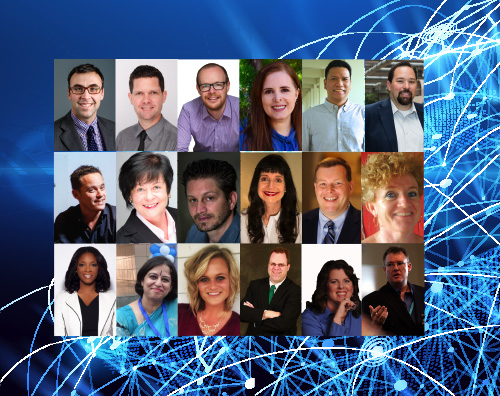There’s a robot in each of our backpacks. Now, of course, there’s always room for improvement in these machines designed to execute one or more tasks with speed and precision, but who can deny that the likes of Alexa and her ever expanding army of pals are just getting better every day. And in the years ahead, the Alexa’s of this world will drastically change the way we live, the way we learn and the way we teach. Some Futurists warn us that robots will take away most of our jobs. Others believe we will co-exist, co-create and live happily ever after. Could a robot replace a teacher? Should a robot replace a teacher?
The Global Teacher Bloggers are pioneers and innovators in fields such as technology integration, mathematics coaching, special needs education, science instruction, and gender equity. They have founded schools, written curricula, and led classrooms in 16 different countries that stretch across every populated continent on earth. This month we asked them: What kinds of teachers will continue to flourish in the Fourth Industrial Revolution?
“The 21st Century classrooms are not marked by one center of authority – i.e. the teacher as all-knowing – but by many more,” writes Maarit Rossi (@pathstomath). “The students are also authorities on technology, with the teachers as content masters and learned guides.” Read More.
“We need to be aware of all the inherent limitations of what AI is, and the very human challenges of using algorithms and big data,” writes Jelmer Evers (@jelmerevers). “AI can definitely augment our profession and help us become better teachers, but as teachers and students we need to be aware of the context in which this change is playing out.” Read More.
“The 4th Industrial Revolution will not threaten any jobs centered around what it is to be human,” writes Richard Wells (@EduWells). “Schools will prepare for the new industrial revolution by realizing it’s about being less industrial and that it’s humans that are wanted.” Read More.
“As human society meanders towards a blurring of human and digital intelligence and artificial intelligence,” writes Adam Steiner (@adamcsteiner), “our schools need to resist the urge to ‘go robot’ and instead focus on timeless human qualities; creativity, compassion and critical thinking.” Read More.
“I believe that teachers who are not updating their skill sets will soon be replaced by techno savvy, well connected and collaborative teachers,” writes Rashmi Kathuria (@rashkath). “It is the age of exploring knowledge beyond textbooks in collaboration with creativity.” Read More.
“We, in EducAid, consider that what gives strength to a teacher is her underlying values and approaches to people more than her specific subject knowledge,” writes Miriam Mason (@EducAidSL). “There is no greater calling and no more powerful way of being part of the world’s development towards a genuine human humanity than being a teacher who facilitates a learner to be the best learner they can be.” Read More.
“It is an exciting, yet scary time for us all, but a time that needs to be embraced by the Education community with open arms,” writes Craig Kemp (@mrkempnz). “Here are the top 5 skills I believe teachers need to continue to flourish in the Fourth Industrial Revolution…” Read More.
“Teachers must be technology oriented and responsible not only for teaching but also for learning,” writes our guest blogger, Ngô Thành Nam (@mrnamvas). “In order to successfully integrate and respond to future work, teachers must equip students with at least the following 5 skills…” Read More.
“I am not an expert in AI or robotics. But, I am a teacher,” writes Armand Doucet (@DoucetArmand). “I believe there is a place in our classrooms for the digital age that greatly benefit both teacher and student.” Read More.
“I am living in a developing country where the Fourth is slowly but surely being felt in the epicenters of big cities. On many sides of my country, some are still stuck in the second,” writes Jim Tuscano (@jimtuscano). “Let us not wait for the Fourth to completely leave us behind. Let us step up and take the challenge. To prepare students for the Fourth, let us prepare our teachers first.” Read More.
Elisa Guerra Cruz (@ElisaGuerraCruz) advises educators to “Be human. This is, after all, your most important differentiator against robots! Take time to develop and nurture relationships with students, parents and other teachers.” Read More.
“A teacher is a pedagogical engineer who needs to apply the right learning approach at the right moment: learning by doing, instructing, flipping the classroom, collaborative learning, etc.,” writes Koen Timmers (@zelfstudie). “Pedagogy is key.” Read More.
“If we allow our profession to continue the trend toward scripted lessons being read out of teacher manuals, distribution of mind-numbing worksheets, and preparing children for mass-produced high-stakes standardized tests, we will be replaced,” writes Michael Soskil (@msoskil). “Instead we must ensure that teaching remains a job rooted in humanity, emotionally connected with both children and content, and love.” Read More.
(All photos are courtesy of CMRubinWorld)
Top Row L to R: Armand Doucet, Craig Kemp, Richard Wells, Elisa Guerra Cruz, Jim Tuscano, Carl Hooker
Middle Row L to R: Jelmer Evers, Maarit Rossi, Koen Timmers, C.M. Rubin, Michael Soskil, Miriam Mason-Sesay
Bottom Row L to R: Nadia Lopez, Rashmi Kathuria, Shaelynn Fransworth, Adam Steiner, Vicki Davis, Warren Sparrow
Join me and globally renowned thought leaders including Sir Michael Barber (UK), Dr. Michael Block (U.S.), Dr. Leon Botstein (U.S.), Professor Clay Christensen (U.S.), Dr. Linda Darling-Hammond (U.S.), Dr. MadhavChavan (India), Charles Fadel (U.S.), Professor Michael Fullan (Canada), Professor Howard Gardner (U.S.), Professor Andy Hargreaves (U.S.), Professor Yvonne Hellman (The Netherlands), Professor Kristin Helstad (Norway), Jean Hendrickson (U.S.), Professor Rose Hipkins (New Zealand), Professor Cornelia Hoogland (Canada), Honourable Jeff Johnson (Canada), Mme. Chantal Kaufmann (Belgium), Dr. EijaKauppinen (Finland), State Secretary TapioKosunen (Finland), Professor Dominique Lafontaine (Belgium), Professor Hugh Lauder (UK), Lord Ken Macdonald (UK), Professor Geoff Masters (Australia), Professor Barry McGaw (Australia), Shiv Nadar (India), Professor R. Natarajan (India), Dr. Pak Tee Ng (Singapore), Dr. Denise Pope (US), Sridhar Rajagopalan (India), Dr. Diane Ravitch (U.S.), Richard Wilson Riley (U.S.), Sir Ken Robinson (UK), Professor Pasi Sahlberg (Finland), Professor Manabu Sato (Japan), Andreas Schleicher (PISA, OECD), Dr. Anthony Seldon (UK), Dr. David Shaffer (U.S.), Dr. Kirsten Sivesind (Norway), Chancellor Stephen Spahn (U.S.), Yves Theze (LyceeFrancais U.S.), Professor Charles Ungerleider (Canada), Professor Tony Wagner (U.S.), Sir David Watson (UK), Professor Dylan Wiliam (UK), Dr. Mark Wormald (UK), Professor Theo Wubbels (The Netherlands), Professor Michael Young (UK), and Professor Minxuan Zhang (China) as they explore the big picture education questions that all nations face today.
The Global Search for Education Community Page
C. M. Rubin is the author of two widely read online series for which she received a 2011 Upton Sinclair award, “The Global Search for Education” and “How Will We Read?” She is also the author of three bestselling books, includingThe Real Alice in Wonderland, is the publisher ofCMRubinWorld and is a Disruptor Foundation Fellow.
Follow C. M. Rubin on Twitter: www.twitter.com/@cmrubinworld


You need to be a member of THE VISUAL TEACHING NETWORK to add comments!
Join THE VISUAL TEACHING NETWORK